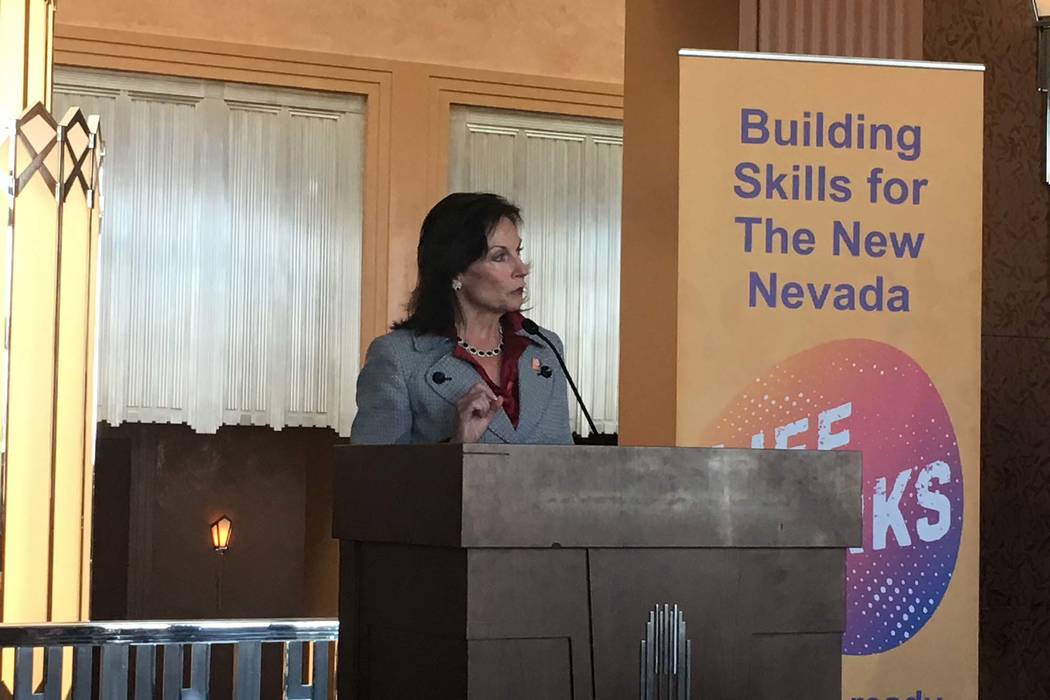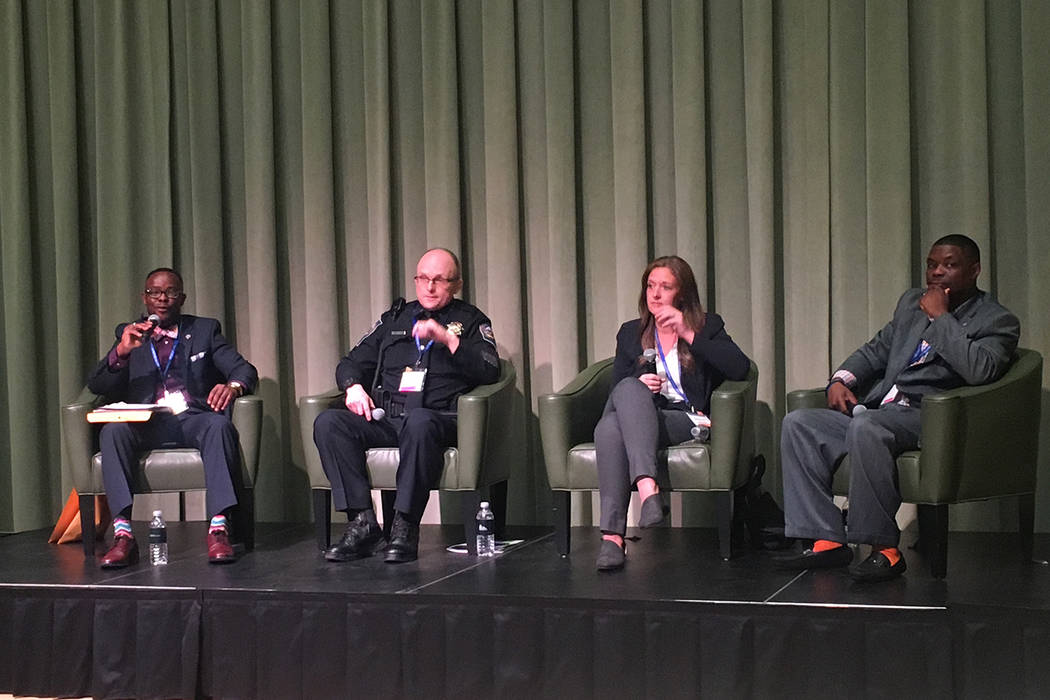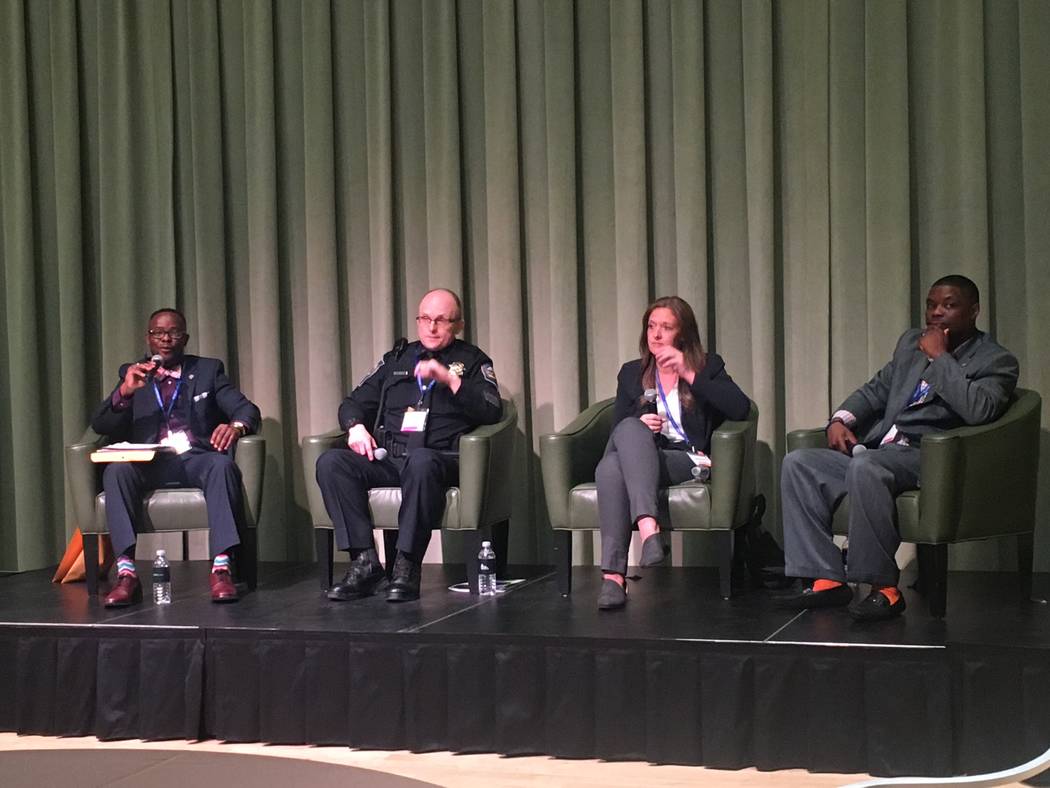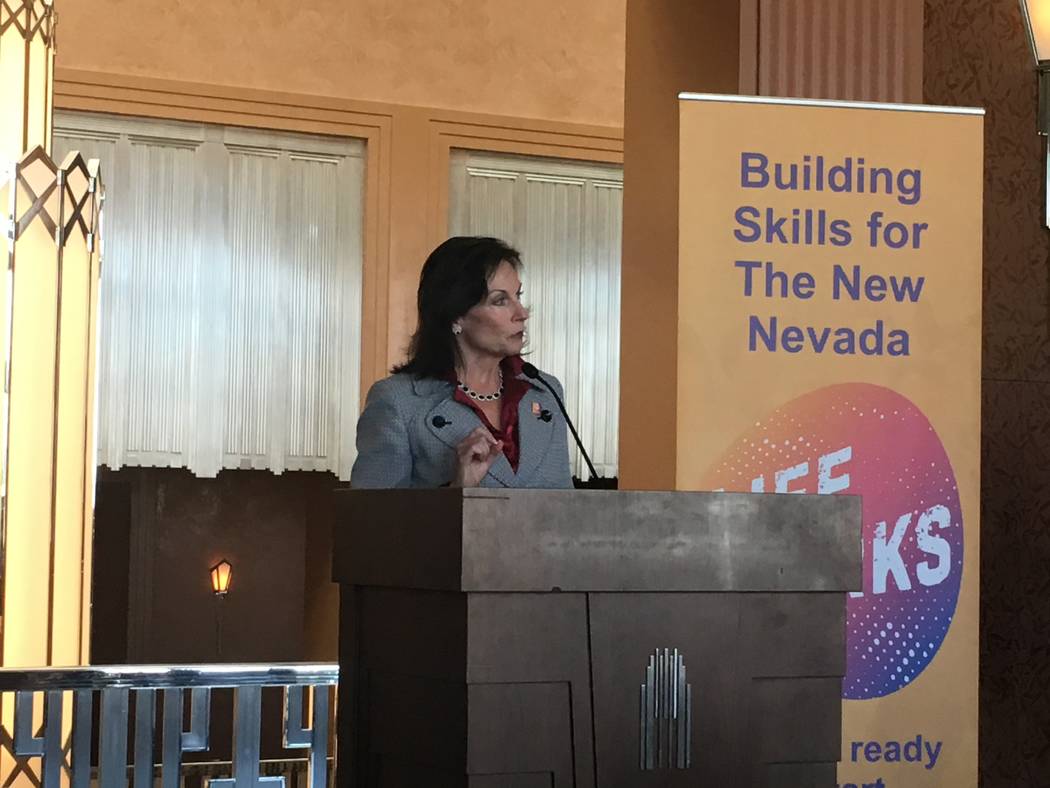Las Vegas summit highlights need for workplace learning
Nevada will need to create at least 270,000 jobs over the next 12 years to meet the growing needs of tomorrow’s workforce. Work-based learning can help fill those positions.
That’s according to Jeremy Aguero, principal of Applied Analysis.
“We need to train these students to be thinkers and doers,” he said.
Aguero’s comments came during the Governor’s Education to Workforce Summit held Thursday at The Smith Center, where employers, analysts, educators and members of governmental organizations such as the Governor’s Office of Workforce Innovation, gathered to discuss work-based learning opportunities.
Work-based learning can help connect the workforce of tomorrow with in-demand jobs, according to Manny Lamarre, the executive director of OWINN. He said the state hopes to have 55,000 younger adults engaged in work-based learning — which includes internships, co-ops, apprenticeships and more — by 2025.
“We need more young people entering the workforce to support the tax dollars, to support our community,” Lamarre said.
There are about 512,400 students in the state’s K-12 system. Even with more Nevada students obtaining degrees for in-demand fields such as health services, nursing, sciences and engineering, Aguero said, more needs to be done.
“It’s not even close enough in terms of what’s going to be necessary to ensure that those half-million students that are coming through our system are ready to take the jobs that are going to be available to them in a decade when they come out of school,” he said.
There are several ways to create jobs for this growing workforce, Aguero said, including more internship and apprenticeship programs. But it’s important to keep in mind the types of jobs Nevada needs to fill.
The state falls about about 8,000 jobs short of the national average in professional and business services, 11,000 short in information, 64,000 short in manufacturing and 80,000 short in education and health services.
“Our economy is more diversified today than it was at the peak of the last economic cycle,” Aguero said. “But we are not a diversified economy.”
Lt. Jeff Varner works with Nevada Highway Patrol interns. He said law enforcement isn’t the most sought-after line of work, but work-based learning programs have helped.
“It provided us with an opportunity to recruit,” Varner said. “You get a little bit of experience within the agency, and there’s a possibility that we’ll have these interns come back to us.”
Gov. Brian Sandoval, who was unable to attend the event but relayed a message via video, said Nevada is expected to have about 630,000 open jobs by 2024. A majority of those will require more than a secondary diploma but less than a four-year degree.
“If Nevada is to continue to grow and thrive economically, we must provide skilled workers to employers and allow young adults to participate in the workforce,” he said.
Mary Beth Sewald, president and CEO of the Las Vegas Metro Chamber of Commerce and the keynote speaker at Thursday’s summit, said it’s important to connect young people with the credentials and experiences needed to find adequate jobs.
“We just cannot sustain these long-term economic growth issues that we have and compete in a global economy unless we really get serious about marrying education and the workforce,” she said. “It needs to be education that is more focused on marketable and practical skill sets that are actually relevant to what employers need.”
She said employers and organizations need to commit to programs like internships, mentorships and apprenticeships to make a difference in the lives of the workforce of tomorrow.
“Workforce training can’t be two years behind,” she said. “It needs to be two years ahead.”
Contact Bailey Schulz at bschulz@reviewjournal.com or 702-383-0233. Follow @bailey_schulz on Twitter.


























